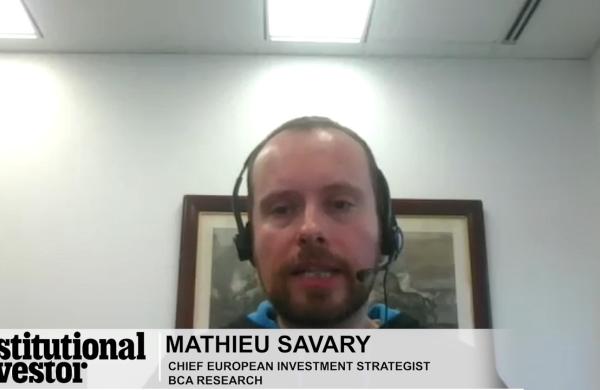Many pension funds have reacted to the recent gyrations of equity markets by remembering the adage that discretion is the better part of valor. As a result, they have reduced their allocations in this volatile asset class even further, according to asset managers.
Many analysts see this trimming of equity exposure as a sensible approach for long-term structural reasons.
Equities do not make an easy fit with defined benefit pension funds’ long-term strategy of moving towards liability-driven investment, which is based on securing a steady stream of annual income that can match their required payouts to scheme members. For this, the yields offered by bonds seem just the ticket. By contrast, the majority of return from equities comes from uncertain gains in stock values rather than steady income from dividends – and volatile markets make these capital gains (or losses) ever more unpredictable.
So the growth of liability-driven strategies has prompted further asset allocation by pension funds away from equities and into bonds – and recent equity market turbulence has simply reinforced an existing tendency.
However, asset managers say predictable returns from bonds are not helpful to pension funds if they are merely predictably low – as they are in major bond markets such as Germany, the United States and the United Kingdom.
At first sight, the rise in the 10-year yields of many Eurozone countries’ sovereign debt provides a solution in the search for decent returns. On October 14, rates for Italian and Spanish government debt were above 5 percent.
But in fact the Eurozone crisis has made pension funds’ conundrum trickier rather than easier. Asset managers say that far from seeing an investment opportunity in the high yields of several Eurozone states, many pension funds have abandoned or cut exposure to “the Eurozone periphery;” countries on the edge, both geographically and fiscally, of the Eurozone’s stable center. Much of this money has been shifted into Bunds, since the German government is seen – relatively speaking – as a paragon of fiscal rectitude. The 10-year Bund’s October 14 yield of 2.20 percent is a mark of this rectitude. However, it is also a paltry return.
Do asset managers see a way out of this problem for pension funds?
They certainly do not think financial-sector bonds offer a solution. Many pension funds, which had been regular investors in the bonds of banks and other financial companies, have become warier about them because of the Eurozone sovereign crisis, because some financials are exposed to the peripheral Eurozone debt which asset managers are trying to avoid.
But does the continuing credit crunch give pension funds any opportunities which were not available five years ago? In October BlueBay launched a fund that will make loans to small and medium-sized businesses in Europe – companies which used to borrow from the banks, until the credit squeeze forced the banks to crack down on lending even to financially sound clients. BlueBay follows M&G Investments, which in 2009 established a similar fund for mid-sized U.K. companies.
The downside of these funds is that private lending through bank-style loans is less liquid than public lending through buying a company’s bonds. That is problematical at this point in the global economic crisis.
The lead character played by Robert DeNiro in the 1995 Hollywood thriller Heat declares in a famous line: “Don’t let yourself get attached to anything you are not willing to walk out on in 30 seconds, if you feel the heat around the corner.” Many pension fund managers currently have a liquidity preference which is only slightly less demanding than that, when faced with an international economic malaise whose constant mutations are continually changing portfolio preferences.
In such times, pension fund managers’ skill lies in finding the right balance between liquidity and long-term investment.






